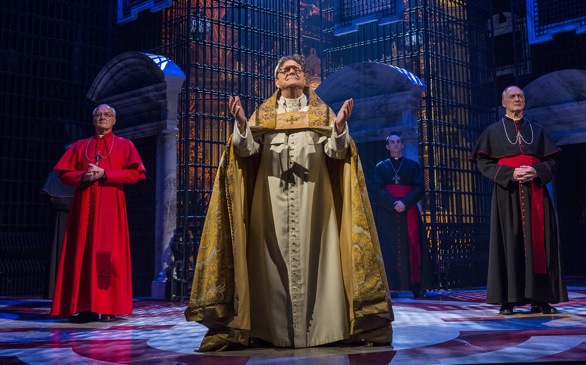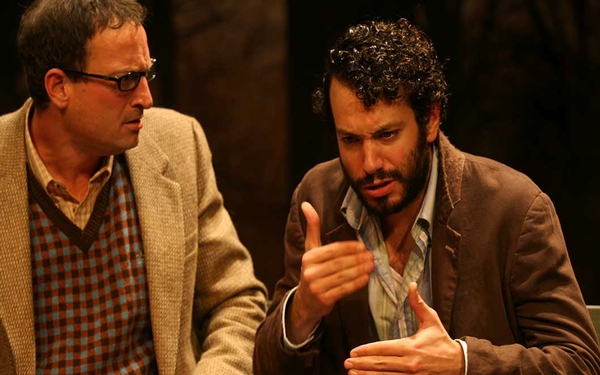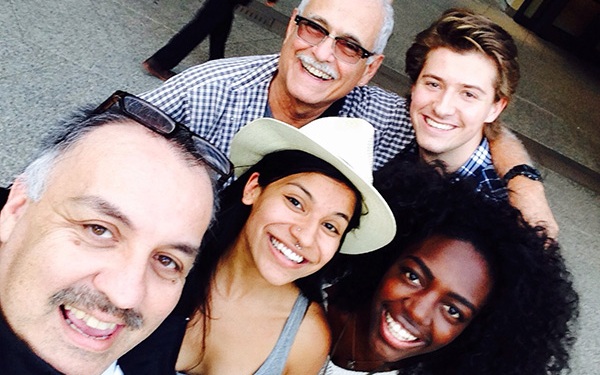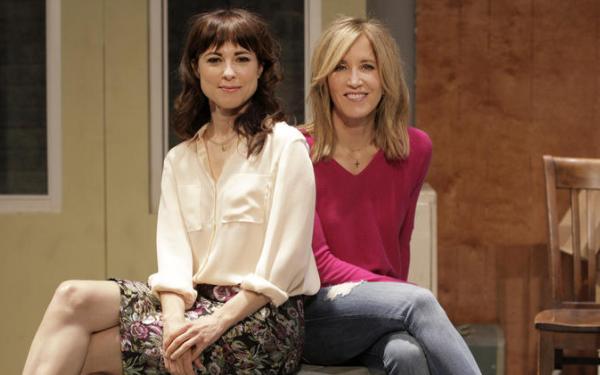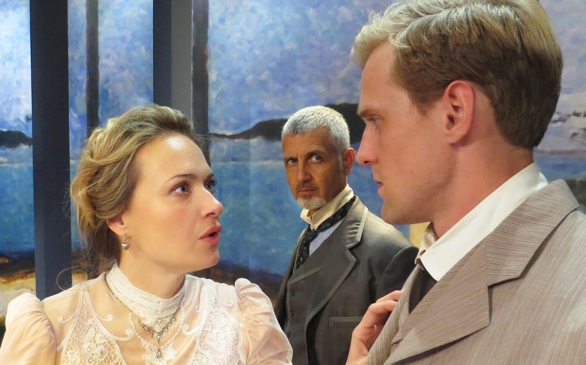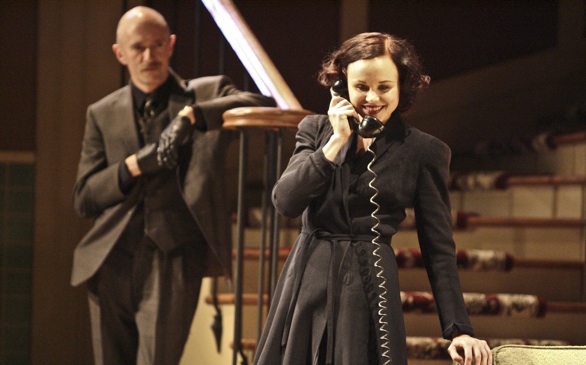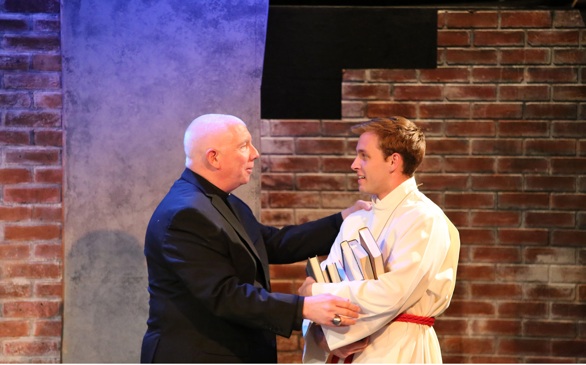“Churches aren’t run by saints. They’re run by men who understand power.”
This standout line is delivered in the midst of Roger Crane’s "The Last Confession," a play full of provocative ideas that will surely spark intellectual debate.
And it’s the Catholic Church – an institution that has been the subject of many controversies and click-baiting news headlines – that receives the "House of Cards" treatment in this production (at least in the eyes of this TV junkie).
Binge-watchers of the Kevin Spacey Netflix drama may see parallels between the two stories. Both dive into the tricky politics of large groups (in Washington and in the Vatican). Both demonstrate power's effects, especially among those who gain it and those who lose it. And both surround a highly coveted position that isn’t what it’s cracked up to be (the POTUS vs. the Pope).
Directed by Jonathan Church, "Confession" unfolds within the Vatican's corridors and explores the circumstances surrounding the sudden death of Pope John Paul I (Richard O’Callaghan), who died a mere 33 days after being elected – and before he could set his liberal reforms into place. The politically savvy Cardinal Giovanni Benelli (David Suchet), who engineered the election of Pope John Paul I, becomes suspicious when he learns the new Pope had warned three of his most influential but hostile Cardinals that they would be replaced on the evening before his death. And what makes this even more intriguing? This really happened, in 1978.
Refusing to conduct an official investigation into the death, the Vatican prevents Cardinal Benelli from seeking the truth – but why? Does the Church wish to sweep some secrets under the rug? Was this unfortunate incident just an act of God’s will? By the end, cynics may find more fuel to add to their doubts about the Catholic Church. On the other hand, believers may find more questions to ask about faith.
To those looking for a traditional whodunit with a standard lineup of suspects and a tidy denouement, look elsewhere. The word “murder” may get thrown around, but all in all, "Confession" comes off more like a sinister commentary on one of the largest organized religions in the world (hell, make that all organized religions). However, Agatha Christie fans may get a kick out of watching Suchet, who has appeared in 74 telefilms as renowned detective Hercule Poirot, put on a different kind of investigator’s cap as he questions and berates those around him.
Speaking of, Suchet, O'Callaghan and the rest of the cast admirably hold it all together. All of the actors are clearly and deeply embedded in their characters. They do their best with Crane’s dense script, a challenge for any seasoned pro, even though it teeters close to becoming a series of scenes full of old men in clerical garb yelling at each other.
That said, the first act, while carrying the burden of some heavy exposition, isn’t as easy to digest as the second, which benefits from some added momentum (and more memorable lines).
With minimal set transitions, thanks to William Dudley’s multipurpose designs, and a moody score from Dominic Muldowney, "The Last Confession" may resemble an extra-long and (sometimes) tedious Sunday Mass for those haunted by Catholic school memories.
But for others, it will ultimately feel like a two-hour, behind-the-scenes peek at what goes on long after the ceremonial services have ended.


